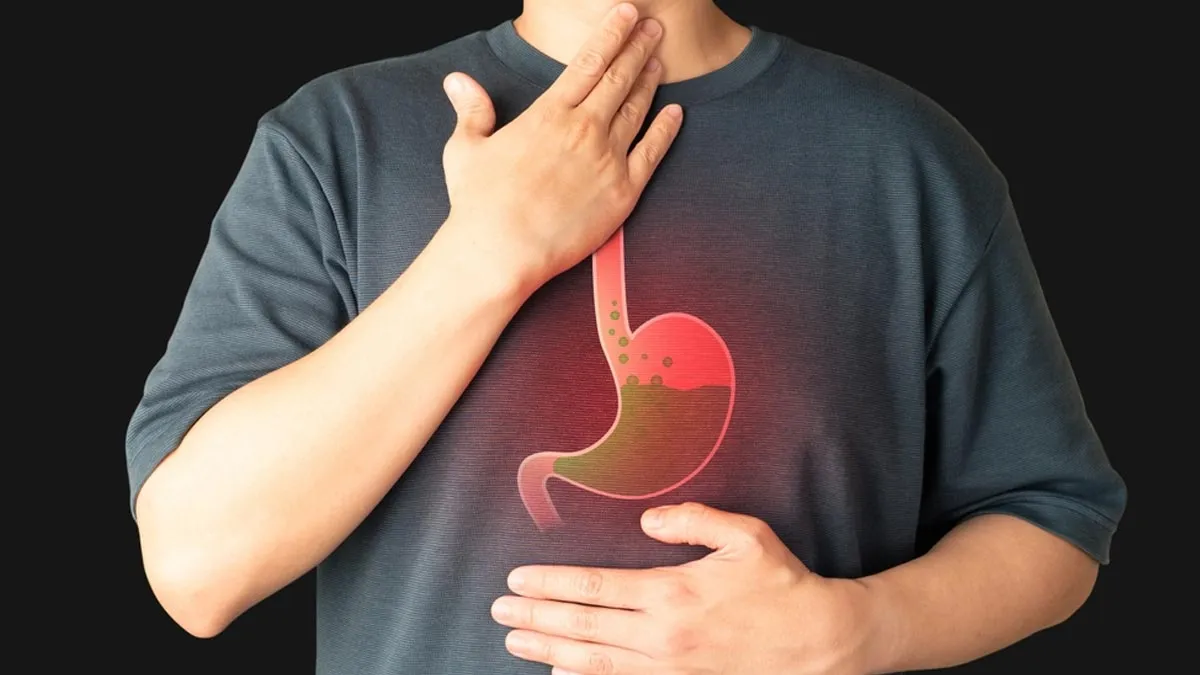
Ever dealt with burps that smell like rotten eggs? Now, this isn't anything like your usual harmless burps from swallowing air while eating or drinking. What you’ve likely experienced are sulphur burps, caused by hydrogen sulphide (H2S) gas in your gut. While having an occasional sulphur burp is not a cause for concern, if you have more frequent episodes, it is time to consult a doctor, as these burps may indicate an underlying health condition.
Table of Content:-
Also Read: Why Do We Burp? Know What, Why And How
What Are Sulphur Burps?

Sulphur burps are burps that smell like rotten eggs. Normally, burping helps release excess air swallowed while eating or drinking. Most of this air doesn’t even reach your stomach; it lingers around in the oesophagus, building up until your body pushes it out as a burp. However, when sulphur burps are involved, the breath does not smell pleasant, hinting at underlying digestive issues.
In contrast to normal burps, sulphur burps may indicate an imbalance in gut bacteria, food intolerances, or even gastrointestinal disorders.
By paying attention to the frequency, odour, and accompanying symptoms of your burps, you can better identify whether you are experiencing normal digestive processes or if sulphur burps warrant further investigation and potential dietary adjustments, Dr Amit Yelsangikar, Consultant - Medical Gastroenterology, Aster CMI Hospital, Bengaluru, tells the OnlyMyHealth team.
What Causes Sulphur Burps?

According to Yelsangikar, the primary factors that contribute to sulphur burps include the consumption of certain foods, digestive disorders, and the presence of specific bacteria in the gastrointestinal tract.
"Foods that are high in sulphur, such as garlic, onions, and cruciferous vegetables, can lead to the production of hydrogen sulphide gas during digestion, which may result in the characteristic odour associated with sulphur burps," he explains.
Additionally, conditions such as Gastroesophageal Reflux Disease (GERD) or Irritable Bowel Syndrome (IBS) can disrupt normal digestive processes, further exacerbating the production of gas.
The presence of certain bacteria, particularly those that thrive in the intestines, can also ferment undigested food, leading to increased gas production and the subsequent release of sulphurous compounds, adds Dr Yelsangikar. According to Medical News Today, an infection in the upper gastrointestinal tract caused by the Helicobacter pylori (H. pylori) bacterium may also cause problems, such as bloating, heartburn, and sulphur burps.
Also Read: Handy Remedies To Relieve Gas And Burps At Home
Home Remedies To Manage Sulphur Burps

Sulphur burps are usually not life-threatening, but their underlying causes can be if left untreated.
To manage this condition, Dr Yelsangikar recommends adjusting one’s diet, such as reducing the intake of sulphur-rich foods like garlic, onions, and cruciferous vegetables. Additionally, incorporating probiotics into your diet may help balance gut bacteria and improve digestion, potentially reducing the frequency of these burps, the doctor adds.
Drinking plenty of water and staying hydrated is also crucial, as it can aid in digestion and help flush out excess gas. Most importantly, practising mindful eating by chewing food thoroughly and avoiding carbonated beverages can significantly reduce the occurrence of sulphur burps.
Also watch this video
Read Next
World Oral Health Day 2025: Expert Explains The Importance of Gum Health For Mother And The Baby
How we keep this article up to date:
We work with experts and keep a close eye on the latest in health and wellness. Whenever there is a new research or helpful information, we update our articles with accurate and useful advice.
Current Version